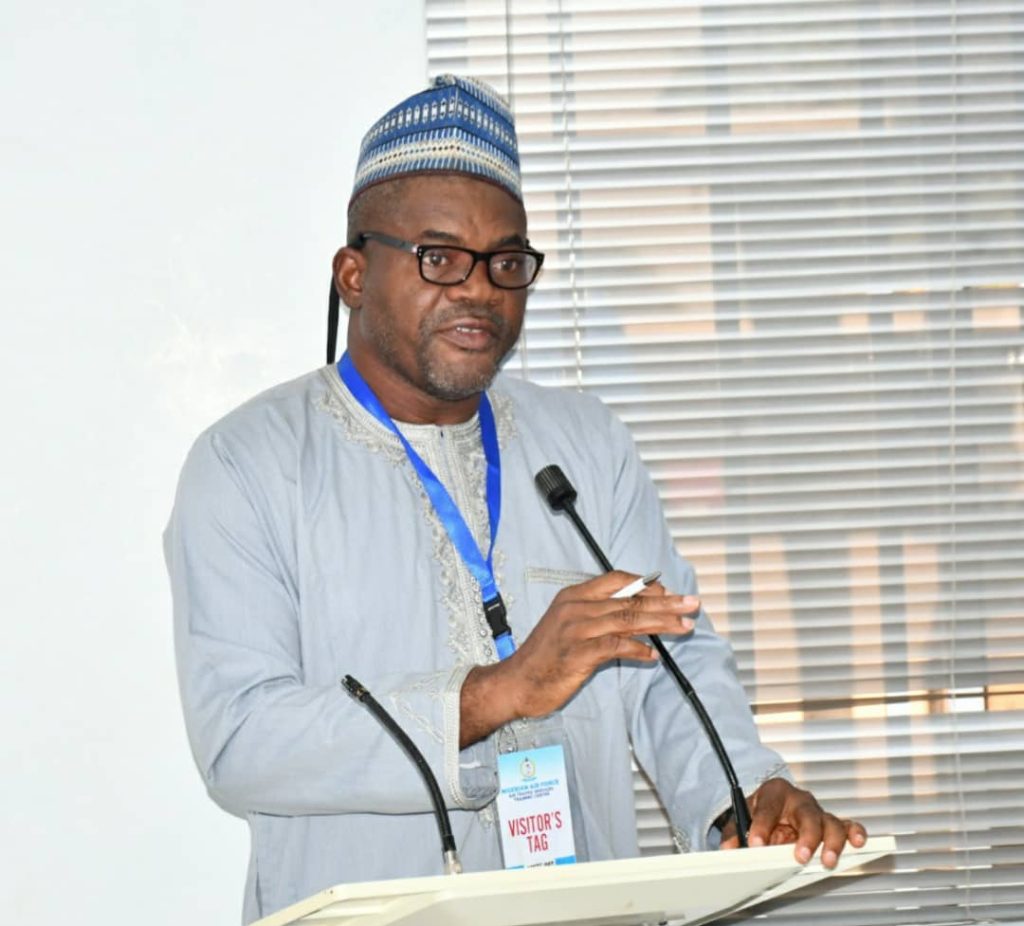…calls for urgent recruitment

To address the challenge of dearth of Air Traffic Controllers (ATCOs) and its attendant consequences, the Nigerian Air Traffic Controllers Association (NATCA) has emphasised the urgent need to recruit and train additional Air Traffic Controllers.
This, according to the association will provide more ATCOs to man the country’s airspace thereby mitigate fatigue and ensure optimal safety and efficiency in airspace management.
Speaking in an interview held at the Murtala Muhammed International Airport (MMIA) Lagos, NATCA President, Mr. Amos Edino, explained that the current shortage of ATCOs has resulted in excessive workload, prolonged duty hours, and increased stress levels, negatively impacting both performance and well-being.
He noted that ATCOs are often required to work beyond the standard two-hour shift limit per session, with some working four to five hours continuously due to manpower constraints.
Edino further expressed concerns over the rapid establishment of new airports by various state governments without a corresponding plan for staffing and operational management, exacerbating the shortage of licensed ATCOs.
He underscored the limitations of the Nigerian College of Aviation Technology (NCAT), Zaria, in training the required number of ATCOs. While the government recently initiated the recruitment of over 200 cadets, the selection process was flawed due to a lack of due diligence in assessing qualification requirements.
He also noted that NCAT does not have the capacity both in terms of facilities and instructional manpower to train such a large number of cadets simultaneously.
As a result, he noted, the current administration, through the Nigerian Airspace Management Agency (NAMA), has sought intervention from the Nigerian Air Force ATS Training School in Kaduna to complement training efforts.
On the issue of remuneration, Edino decried the fact that Nigerian ATCOs remained the least paid in Africa despite the critical role they play in ensuring the safe, orderly, and expeditious flow of air traffic.
He urged the government to review the salary structure to reflect international best practices and enhance motivation within the profession.
The NATCA President also expressed his concerns on the current practice of rehiring retired ATCOs on contract, stating that a more sustainable approach would be to extend the retirement age from 60 to 65 years.
This he said, would allow for knowledge transfer, mentorship, and continuity within the profession, similar to the ones extended to health workers and teachers.
Edino further explained that commercial pilots stay up to 65 years of age before retiring and advocated for an improved retirement package to discourage post-retirement contract engagements.
He emphasised the need for a comprehensive health care package for ATCOs, noting that prolonged exposure to radiation in radar facilities has led to cancer-related health challenges. “There have been documented instances of ATCOs succumbing to cancer-related ailments, necessitating immediate attention to mitigate occupational health hazards.”
On challenges of infrastructure, Edino lamented the poor working conditions at several control towers and operational rooms, pointing out that in many locations, non-functional elevators forced controllers including female and pregnant ATCOs, to climb over 250 steps daily to access their workstations, with reported cases of miscarriages linked to these strenuous conditions.
He further noted that many ATC work environments are equipped with outdated systems, adversely affecting efficiency and safety.
In the area of Air Traffic Management (ATM) systems, he emphasised the need for an urgent upgrade of the current surveillance system, the Total Radar Coverage of Nigeria (TRACON) system, which has exceeded its intended operational lifespan.
“Initially designed to serve for 10 years. The system is now almost 20 years old, significantly reducing its reliability, availability and integrity.
“The long-standing challenge of the efficiency of communication system in Nigerian ATC operations also requires immediate modernisation for the provision of safe and efficient Air Traffic Control Services,” Edino pointed out.
He further called for the provision of facilities and equipment to enhance coordination with adjacent Flight Information Regions (FIRs), and other ATC units.
Despite these challenges, NATCA acknowledged the ongoing efforts of NAMA) under the leadership of the Managing Director, Engr. Ahmed Farouk, and commended the administration’s commitment to addressing these long-standing issues.
He expressed NATCA’s willingness to collaborate in achieving a safer and more efficient Air Traffic Management System.
“This is a defining moment for the agency. If NAMA successfully resolves these persistent challenges, it will be a lasting legacy for the leadership team, ensuring that Nigeria’s ATC system ranks among the best globally,” he averred



